-
Now at least thirteen suicides directly linked to Post Office Scandal
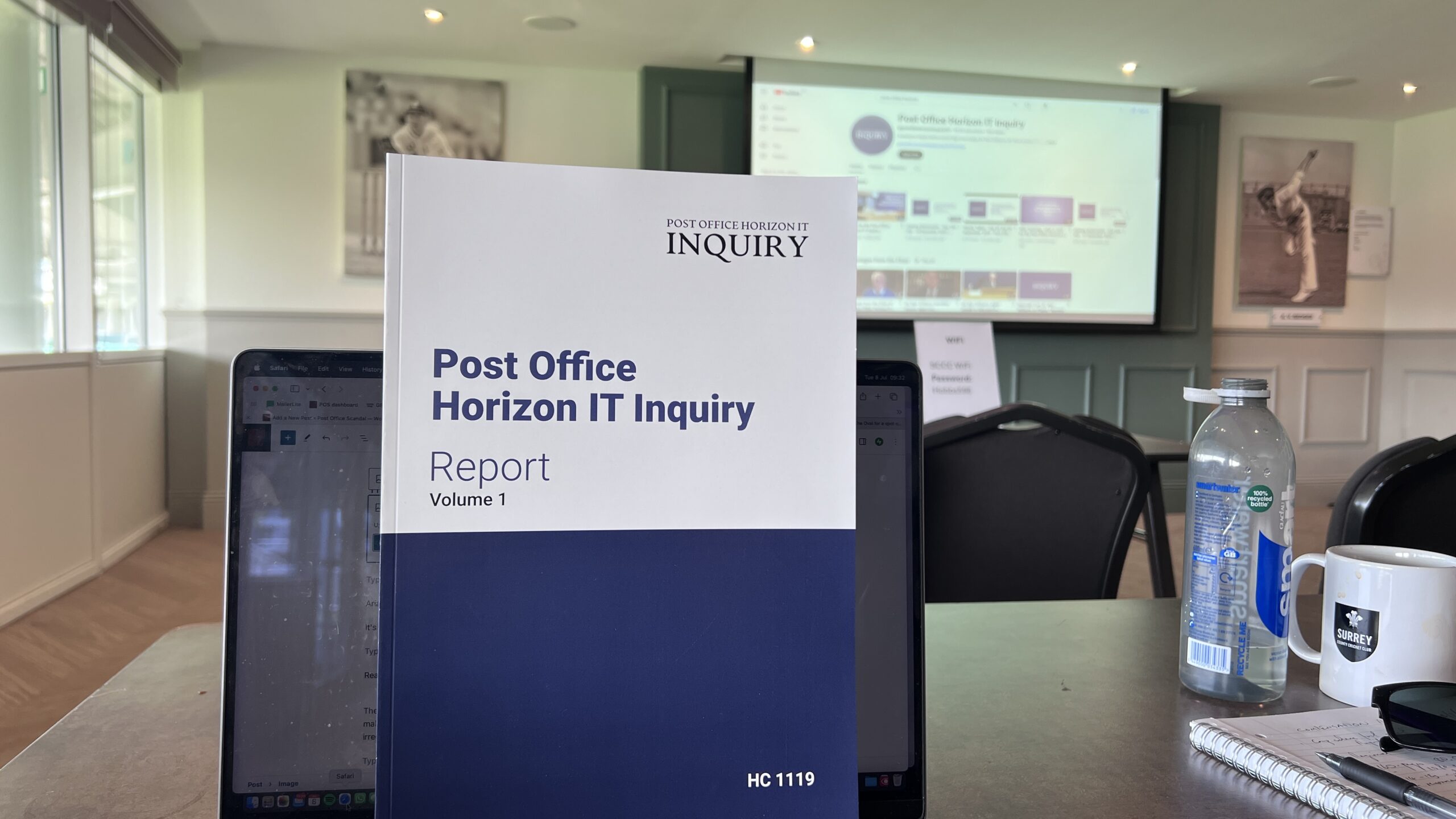 Read More…: Now at least thirteen suicides directly linked to Post Office Scandal
Read More…: Now at least thirteen suicides directly linked to Post Office ScandalPart one of Sir Wyn Williams’ report into the Post Office Horizon scandal has landed. He makes a total of nineteen recommendations, crunches a number of significant figures and as per the headline to this piece, reveals the number of lives lost as a direct result of this scandal. Dealing with the most significant statistic first, in March this year, Sir Wyn Williams asked the Post Office to tell him how many people they know appear to have taken their own lives “as a consequence of Horizon showing an illusory shortfall in branch accounts”. Williams asked the Post Office for…
-
Nick Gould “removed from professional duties following serious concerns”
 Read More…: Nick Gould “removed from professional duties following serious concerns”
Read More…: Nick Gould “removed from professional duties following serious concerns”Aria Grace Law have issued a longer statement, following a piece I published about Nick Gould on Friday. It’s worth reading in full. Formal Statement from Aria Grace Law CIC We issue this statement in response to the article published by Mr Nick Wallis on 6 June 2025 concerning Mr Nick Gould and the legal services he claims to have provided to former clients of Aria Grace Law, including Ms Seema Misra. Aria Grace Law CIC was founded to uphold integrity, transparency, and the rights of those failed by institutions. The matters reported are deeply concerning and require a clear…
-
Lawyer threatens legal action against victim of Horizon scandal
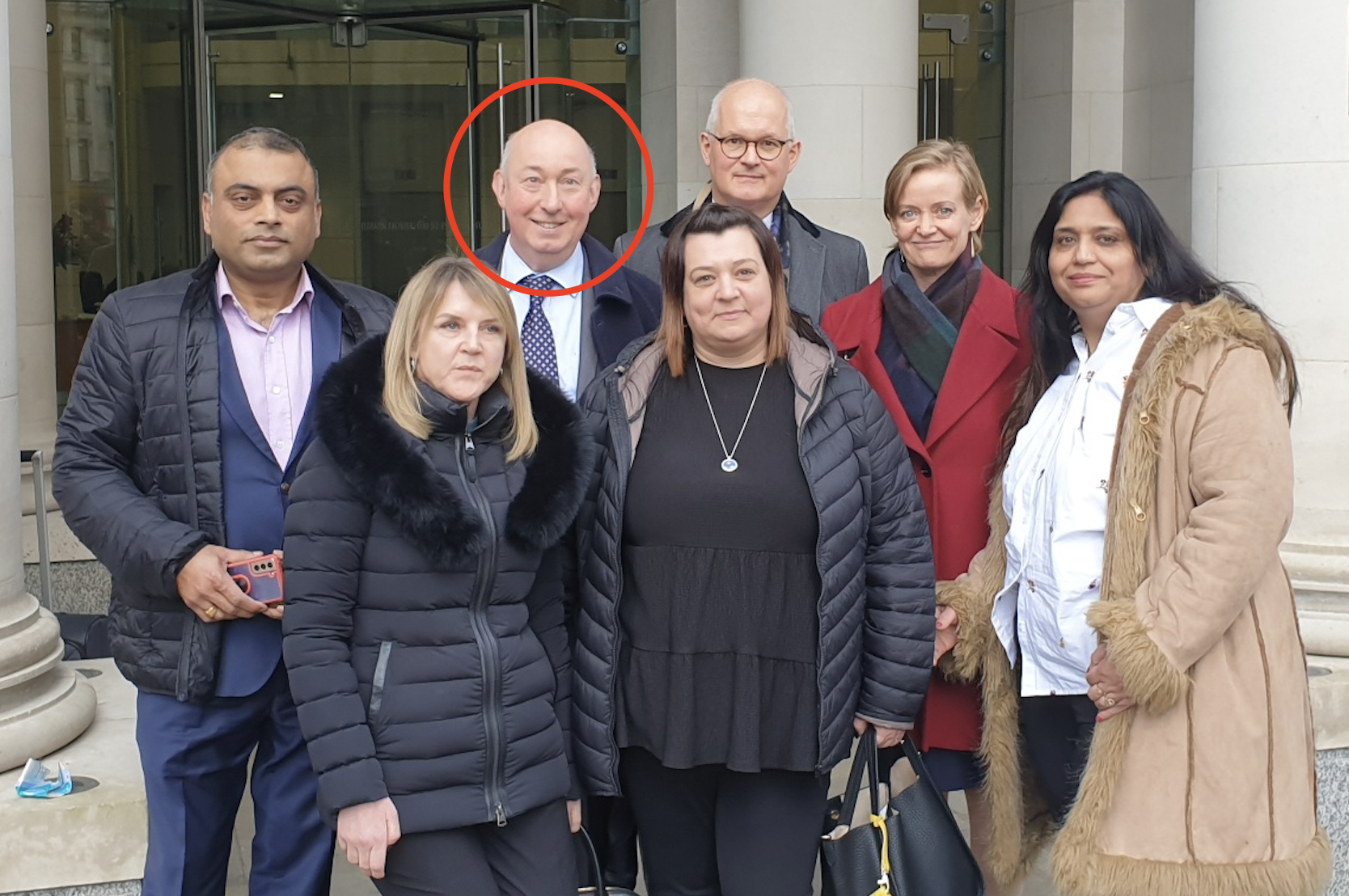 Read More…: Lawyer threatens legal action against victim of Horizon scandal
Read More…: Lawyer threatens legal action against victim of Horizon scandalA victim of the Post Office Horizon IT scandal, Seema Misra, has been threatened with legal action over a £60,000 bill by one of her former lawyers, Nick Gould. Gould worked pro bono (for free) with the barristers Flora Page and Paul Marshall, doing the groundwork in 2020 on Seema’s successful appeal against her conviction for theft in April 2021. Gould also helped ensure Janet Skinner and Tracy Felstead’s convictions* got quashed at the same hearing by doing a lot of the spadework with Page and Marshall in 2020. In the immediate aftermath of the appeal hearing in 2021, Nick…
-
Post Office CEO allegedly sought to put back redress target to secure bonus
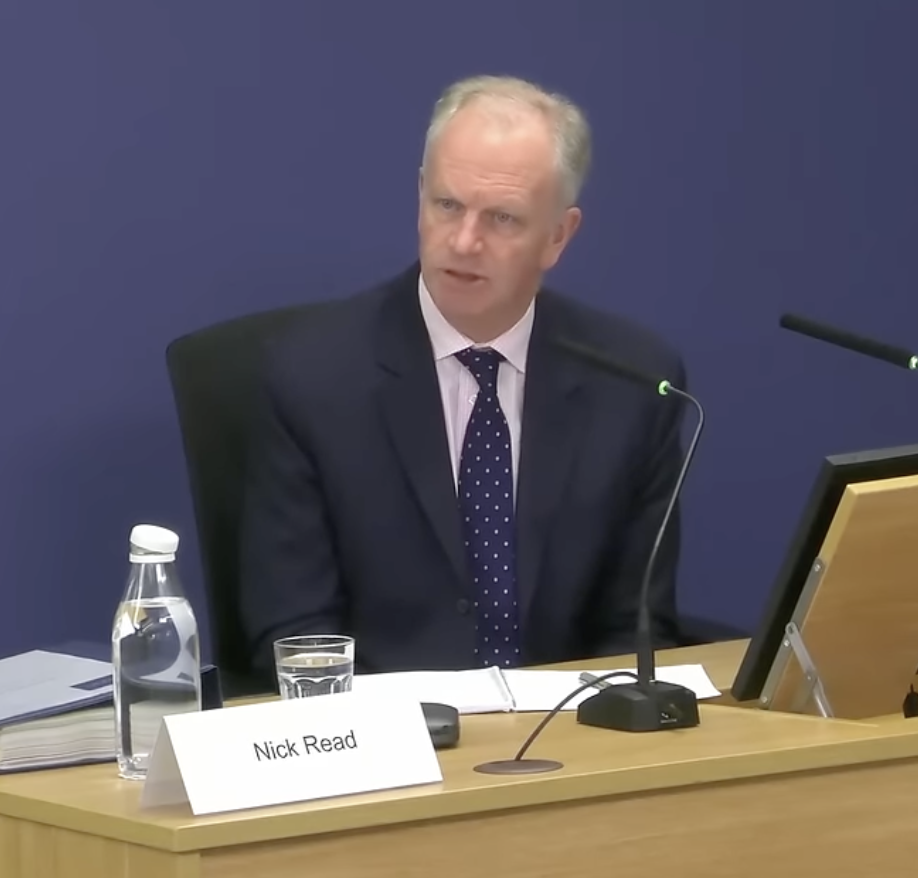 Read More…: Post Office CEO allegedly sought to put back redress target to secure bonus
Read More…: Post Office CEO allegedly sought to put back redress target to secure bonusJane Davies, the former Chief People Officer at the Post Office claims that Post Office management, led by CEO Nick Read, attempted to delay a key compensation target date in order to ensure they qualified for a bonus. Ms Davies said “changing this target would result in slower compensation payments, in favour of paying a bonus”. According to Jane Davies’ witness statement to the Post Office Inquiry, the demand came on Davies’ first day of work at the Post Office – 2 Dec 2022. Read sent an email to Davies’ predecessor, Angela Williams, and copied Davies in. Read wanted Williams…
-
Closing statements: Day 2 – Circular Firing Squad
 Read More…: Closing statements: Day 2 – Circular Firing Squad
Read More…: Closing statements: Day 2 – Circular Firing SquadThere were some good points made today, but the main one was a big shrug – “not me, mate”. In this blog post I’m going to focus on what was said by the various core participants’ barristers. For more on what it was like to be there and why there’s a basket full of chocolate brussel sprouts on the Inquiry ante-room island, please subscribe to my newsletter (details below or here), which I’ll aim to get out tomorrow. For the first time in a while, the hearing room was full, with a decent complement of journalists, lots of Subpostmasters, lawyers…
-
Closing statements: Day 1
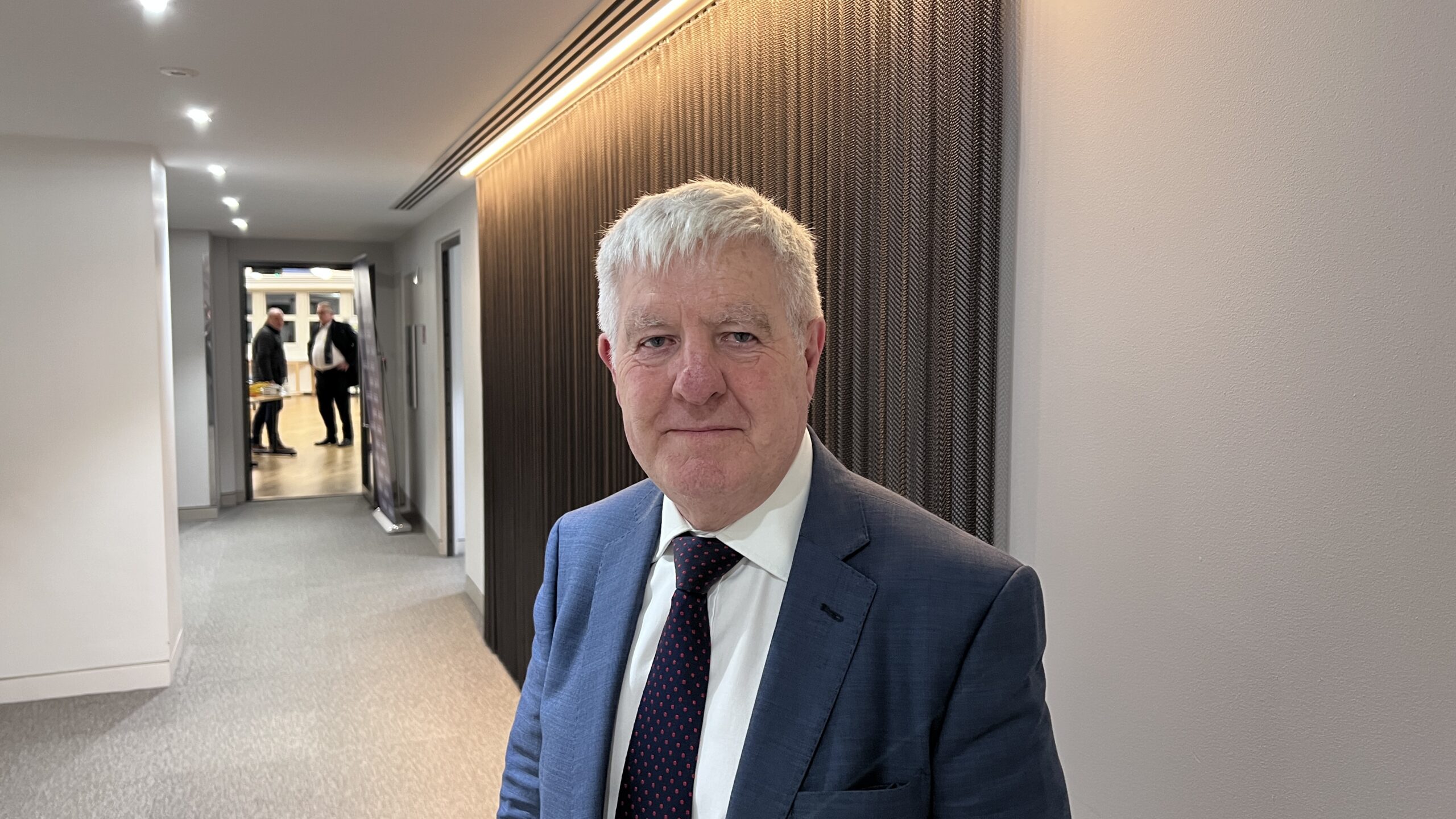 Read More…: Closing statements: Day 1
Read More…: Closing statements: Day 1The hearing room was packed today as Subpostmasters, their supporters, lawyers, journalists and members of the public attended a long day of submissions at Aldwych House in London. First out of the blocks was Ed Henry KC who sought to draw the line of conspiracy upwards through the executive to the Post Office board. Henry spoke of the Post Office’s “inveterate contempt” for Subpostmasters, its “corrosive prejudice” against them and said the former Chair Alice Perkins with her henchman Chief Executive Paula Vennells knew exactly what they were doing: “They wanted to keep the lid on it, and the lawyers…
-
New book now on pre-sale: The Great Post Office Cover-Up
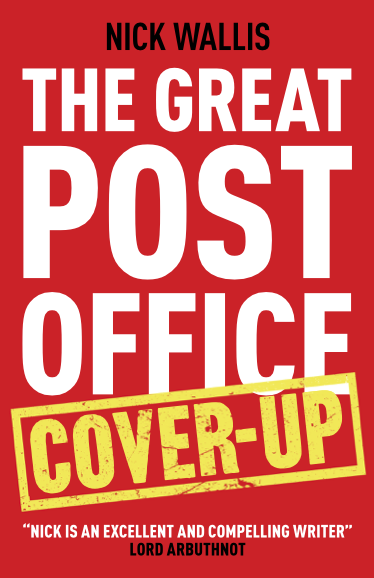 Read More…: New book now on pre-sale: The Great Post Office Cover-Up
Read More…: New book now on pre-sale: The Great Post Office Cover-UpUPDATE on 2 June 2025: all limited edition SIGNED hardbacks have now sold out. You can still pre-buy a hardback for £15 +P&P below (which will be cheaper than the publication price), but it won’t be part of the signed and numbered limited editions. Thanks to everyone who put their money down. Hopefully you’ll have something in your hands by the end of this year! ORIGINAL POST FOLLOWS: I am delighted to announce I have struck a deal with Bath Publishing’s new-ish Cinto imprint to write another book about the Post Office scandal. This one will be called The Great…
-
Issy Hogg
 Read More…: Issy Hogg
Read More…: Issy HoggIssy Hogg, the criminal defence solicitor for Subpostmasters Jo Hamilton and Seema Misra, has sadly passed away. She was 64 years old. Issy (pronounced “Izzy”) was diagnosed with terminal cancer in March 2020, just before the first Covid lockdown. She was given six months to live – perhaps longer with some challenging treatment. Issy decided to take the treatment and live life to the fullest, documenting her “odyssey” on Facebook and in an extraordinary self-published book, Covid Cancer Craic: Coping with a death sentence through memories and laughter, which is available on Amazon. On 26 November, Seema Misra wrote on…
-
Proposed amendment to legal presumption about the reliability of computers
 Read More…: Proposed amendment to legal presumption about the reliability of computers
Read More…: Proposed amendment to legal presumption about the reliability of computersI am grateful to the journalist Tom Webb, who specialises in data protection, for alerting me to an amendment to the Data (Use and Access) Bill, currently going through the House of Lords. It concerns the legal presumption that “mechanical instruments” (which seems to be taken to include computer networks) are working properly if they look to the user like they’re working properly. This has come in for quite a kicking in recent years. I was first alerted to it in 2013 by the barrister Stephen Mason. Mason has spent longer than a decade telling anyone who will listen it…
-
Dame Sandra Dawson vs Paula Vennells’ lawyer
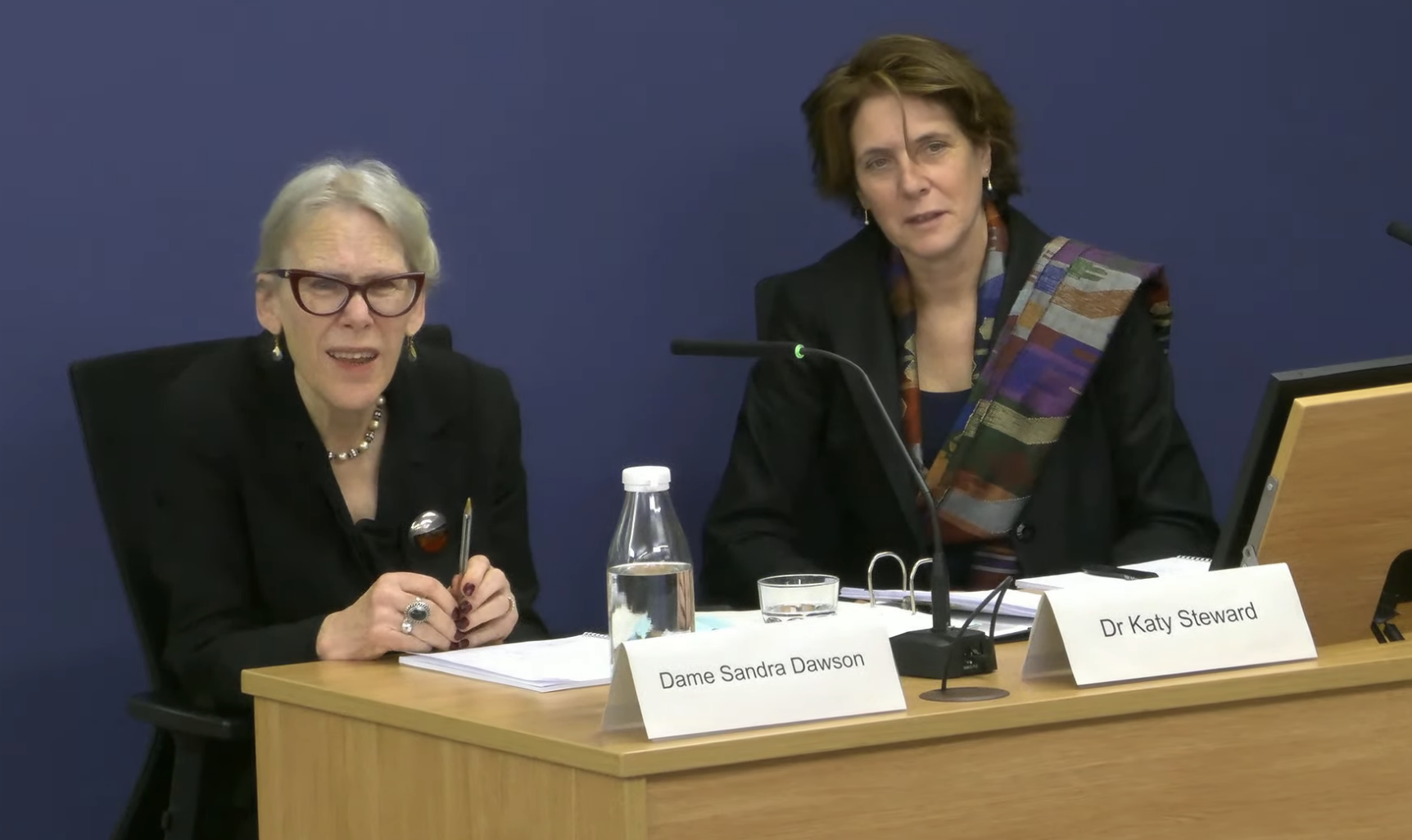 Read More…: Dame Sandra Dawson vs Paula Vennells’ lawyer
Read More…: Dame Sandra Dawson vs Paula Vennells’ lawyerI am publishing this blog post largely as an excuse to use one of my favourite screenshots of the entire Inquiry. See above. Corporate governance experts Dame Sandra Dawson and Dr Katy Steward wrote two lengthy reports about the Post Office’s corporate governance responsibilities and failings when it came to the scandal. On 12 and 13 November they were invited to answer questions about them. For a deep dive into their findings, please read this forensic and frankly much more sensible substack post by Professor Richard Moorhead. For those of you who sometimes just like a snapshot of esoteric weirdness,…
Archives
Most Popular
Tags
Alan Bates alice perkins Alwen Lyons Andrew Winn Andy Dunks Andy Parsons Bates v Post Office Bonusgate CCRC Chris Aujard Clarke Advice False Accounts Fujitsu Gareth Jenkins Grabiner HCAB Horizon Hugh Flemington Inquiry Interim Report Janet Skinner Jarnail Singh Kevin Hollinrake Lee Castleton Lord Arbuthnot Nicki Arch Nick Read Noel Thomas Paula Vennells Paul Marshall Post Office Rebecca Thomson Receipts and Payments mismatch bug Richard Moorhead Rob Wilson Rod Ismay Rodric Williams Second Sight Seema Misra ShEx Simon Clarke Susan Crichton Swift Review Tracy Felstead UKGI
Categories
- Appeals (18)
- Blog (17)
- Book (11)
- Civil litigation (47)
- Compensation (43)
- Corporate (23)
- Fujitsu (32)
- Inquiry (120)
- IT (40)
- Live Events (6)
- Podcast (7)
- Police investigation (12)
- Prosecutions (47)
